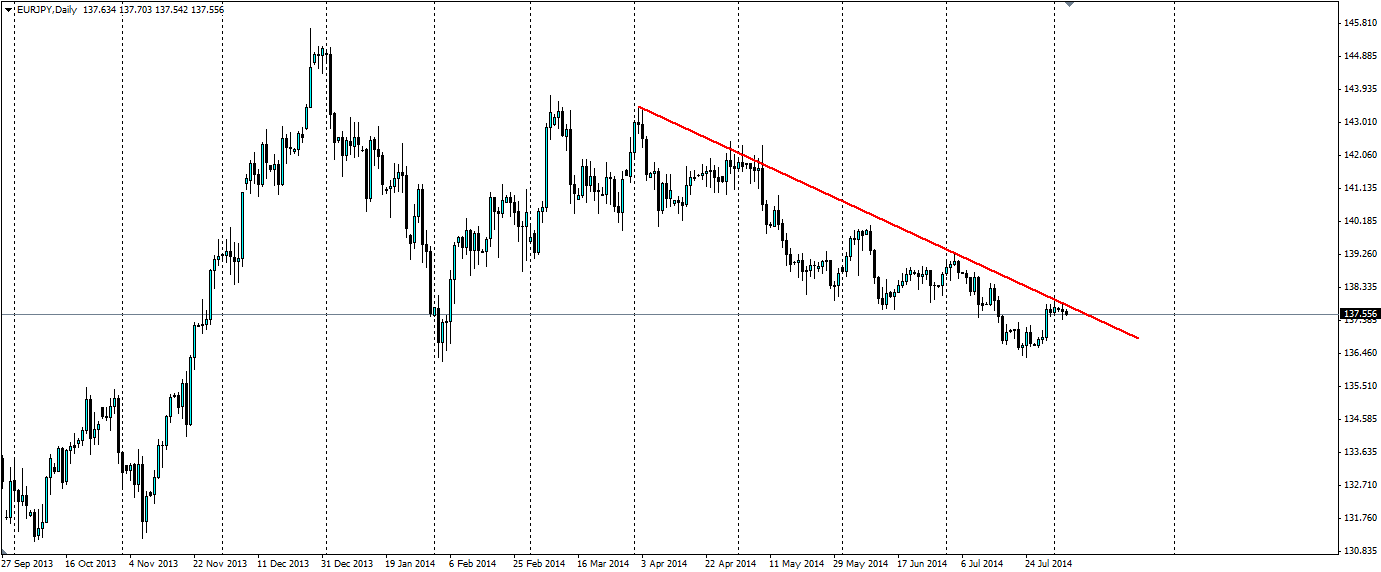The euro and the yen have been facing similar problems and how they have been handled through respective monetary policies has led to the current bearish trend between the pair that looks likely to continue for now.

The problem of deflation has plagued Japan for several decades and the Bank of Japan decided to take a stance. Last year they enacted a massive stimulus policy that bought up trillions of yen worth of bonds and looked to expand the monetary base by a staggering 70%. This led to the devaluation of the Yen against all major partners, including the Euro. So far this has had the desired effect with current inflation figures at 3.6%.
The Euro on the other hand has taken more of a verbal approach and only acted when absolutely necessary. ECB President Mario Draghi had spent a great deal of time trying to talk down the Euro, saying that the ECB stood ready to act with whatever measures were necessary. In June the ECB acted again to reduce interest rates, but not by as much as the market was hoping for.
The diverging actions of the respective central banks can be seen here. In Japan, the action has been decisive and overwhelming and the BoJ are happy with the results. In Europe, the talk has not been effective and the actions have come at a slow trickle. This has not had the desired effect with the EU wide inflation rate falling to just 0.4%.
The expectation in the market is now for Japan to not have to act further, which should strengthen the Yen, or at least support it at its current levels. On the other hand, there is mounting expectation for the ECB to release another round of stimulus, possibly in the form of asset purchases. This is what is supporting the current bearish trend line at present.
There have been some signs of hope for the Euro Zone, with a number of PMI reports showing expansion returning to manufacturing and services sectors and the overall EU unemployment rate dropping to 11.5% from 11.6%. But the inflation rate will be the one the ECB will be worried about.
In Japan, the effect of the sales tax, enacted in April, has been working its way through the economic figures and things are looking a little less rosy. Unemployment unexpectedly jumped to 3.7% from 3.5% and retail sales fell by -0.6% last month. But as with the ECB, the BoJ will be focused on the inflation rate which is on target.
So unless we see some seriously troubling figures from Japan and an unexpected jump in EU inflation, it is unlikely we will see a serious reversal of the current trend in the EURJPY pair.
